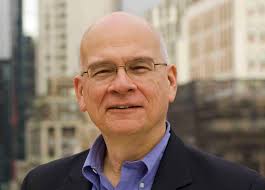a meta journey post: Outside the Box, Inside Common Sense
I like to think outside the box. For example, I love stories about time travel, especially those involving actual historical events. One of my favorite things to do as a kid was to imagine myself at the Battle of the Alamo and how I would have changed the outcome. (I didn’t think about how winning that battle might have cost Texans their war for independence.) I was 15 when John F. Kennedy was gunned down, and I’ve often mused on the what ifs of that tragedy and our subsequent history.
Thinking outside the box of historical events is generally a safe fantasy that can teach valuable lessons about choice and consequences and the complicated elements that make up every life event.
Thinking outside the box when it comes to Christianity and the Bible feels unsafe and dangerous—and it can be. If you think that Republicans and Democrats have trouble agreeing on anything, think about the number of different protestant denominations and independent churches there are. I spent the summer of 1977 studying French in Quebec at a small Bible institute, and there I began to understand why there are so many different kinds of churches: When I arrived, the atmosphere was obviously strained. The faculty had recently split because of a disagreement over whether Jesus had taken his literal blood to heaven to show the Father. (Don’t ask.) I’ll never forget the palpable hurt, the human detritus strewn about by those who valued their own opinions over love. My take-away from this then was great puzzlement as to how on earth people who love Jesus can’t tolerate those who also love Jesus but disagree with them. I found no real answer for this until I rediscovered adoption.
I was introduced to such distorted and unChristian thinking when we began our Bible school training in 1972. We were among Christian fundamentalists for the first time. Fundamentalists get a bad rap for their biblical literalism, legalism, and reputation for shooting their wounded. Yet these people loved Jesus and were excited about Scripture—but I soon figured out that any variation of thought or teaching was looked on with suspicion. I felt I had gone back to the McCarthy era, focused now on doctrinal loyalty, not political loyalty. I was overwhelmed and too fearful of the consequences to question it then.
In the midst of this, a wise teacher told us that if we ever think we’ve discovered new truth, we need to carefully check out what the Church has taught over the centuries. This was common sense. He did leave us some wiggle room: Luther, after all, rediscovered justification by faith, though few others thought that his thinking outside the box would get him any further than the executioner.
Luther posting his “95 Theses”
Some six years ago, I made my rediscovery of spiritual adoption, and along with it, the father heart of God. I was seeing red warning lights flashing, but Scripture does teach adoption—we’d been taught it in Bible school from Romans, Galatians, and Ephesians. But the picture I was now forming from the Gospels of a father who wanted me to know how special I was to him, seemed like wishful thinking. I couldn’t reconcile this with the sovereign, holy, righteous God angry with sin that I heard about week by week. Yet Jesus likened God’s care to an earthly father’s and called him “Abba” (akin to “Papa”). Paul (Eph 1:5) seemed to say that God anticipated adopting children with great pleasure and passion.
Among conservative churches, one hears warnings against teaching that emerged in the 19th century about the “fatherhood of God,” presenting God as a kindly, grandfatherly type, complete with long white beard, who loves everyone the same and overlooks sin. As I studied adoption and God’s role as father, I realized that there was no serious theological writing about God in this role. There was plenty on his role as creator and judge, but no one ever mentioned the “fatherhood of God,” perhaps out of fear. It occurred to me that spiritual McCarthyism was still alive and well.
In my study I found theologians consciously focused on the aspects of God that promoted his “glory”—his majesty, sovereignty, holiness, and righteousness—in order to counter the other teaching and protect God’s reputation. (Protect God? As if!) Their books are still used in seminaries to train pastors.
The unfortunate result of this was that the Church (that’s people, by the way) was left in the dark about what it means to call God “Father.” Left to their own, people imagine a God like a bad parent—and God comes out as judge, as demonstrated in one survey that shows ¾ of Americans, including Christians, view God in a negative light. The truth about God’s father heart got swallowed up in erudite discussions and tomes that give adoption little space. In many churches, what is communicated about God is a picture that leaves congregants running on the performance treadmill. I call this the “ministry of condemnation.” It leads to the very legalism and lack of tolerance that left me so puzzled in Quebec.
As you might suspect, when I started looking into adoption, I went with fear and trembling—quietly at first—searching out anything that would indicate I was not chasing after something to bolster my self-esteem or find a friendly God. But I was spurred on by a promise in the prophet Jeremiah (29:13): “You will seek me and find me when you seek me with all your heart.” Long story short, one day in the library (where else?) I came upon a tape which linked me to some books which linked to some respected theologians and teachers who were also rediscovering adoption. These people were seeing and teaching his father heart without neglecting his great holiness and majesty and all that gives him glory.
I’ve been around long enough, and I’ve been in leadership enough, to know how easy it is to play church and give out “authoritative” pronouncements about God that scare rather than attract. I’ve seen enough destructive thinking about God and the wrong teaching that promotes it. I want to promote good—and accurate—thinking about God through these blog posts. That is what drives them (I hope). What we think of when we think of God is the most important thing about us. If we think of him only as a judge or worse, we run from him or run to keep him “happy.” If we know him as Father, we run to him and with him.
If you’d like to explore for yourself, here are some resources I treasure that aided my search and helped turn me from fear (by knowing his love) to freedom in a relationship with God my Father in the way I believe he intended:
Children of the Living God: Delighting in the Father’s Love, by Sinclair Ferguson, especially his chapter “The Spirit of Adoption.” Ferguson is a pastor and teacher whose perspective on God changed radically as he explored and realized what it meant to be a son of God.
Sinclair Ferguson
Knowing God by J.I. Packer, a popular theologian and teacher now old as dirt, was first published in 1973. Two chapters, “The Heart of the Gospel,” and “Sons of God,” are worth the price of the book.
J. I. Packer
A sermon series on adoption was given by Tim Keller, Pastor of Redeemer Presbyterian Church in Manhattan. Keller’s sermons are engaging and thought provoking. Sermons are available for download ($2.50 for mp3) at: http://www.redeemer.com. Go to the “Sermon Store.” Messages I have found particularly helpful are: “The Experience of Adoption.” February 8, 1998; “Witness of the Spirit,” April 6, 1997.
Tim Keller
Now, (hopefully), back to C.S. Lewis in the next post.







